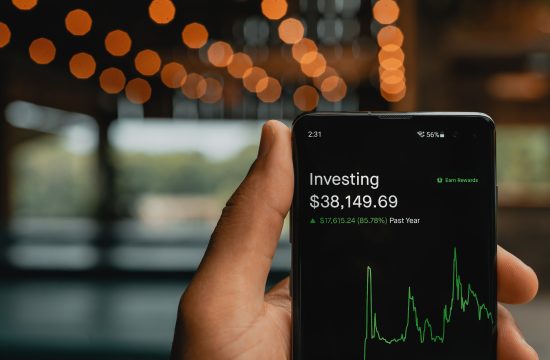“AWESOME, JUST awesome; you’re the best; love that.” J.B. Pritzker dishes out quick-fire pleasantries to supporters in a hall usually reserved for Taekwondo in northern Chicago. Casual in baggy trousers and a woollen top, he pats backs and grins for selfies. He could be mistaken for a jovial, portly uncle at a family gathering: he has plenty of warmth and charm to go with his $3bn in assets.
Mr Pritzker, the heir to the Hyatt hotel fortune, is campaigning to unseat Bruce Rauner, who is also a plutocrat and is the incumbent governor of Illinois. Mr Pritzker brags of expanding the reach of the Democratic party in the state, with “an operation in every county”. After lots of tours of its southern, rural and usually safely Republican part, he predicts Democratic gains all over, thanks in part to his 200 staff and over 5,000 volunteers in 33 field offices.
Four years ago Governor Rauner vowed to apply skills he learned in private equity to pep up Illinois’s slow-growing economy, improve taxes and fix rotten public finances. Instead he clashed with a powerful, Democrat-dominated legislature. For two years he could not even pass a budget. The state remains saddled with enormous debts, notably a $130bn unfunded liability for public pensions. Chicago’s economy is thriving; the rest of the state less so.
Mr Rauner’s political path is just as treacherous. As a moderate Republican who shuns President Donald Trump, he struggles to fire up the party’s base. When the president dropped in for a rally in the state he ignored Mr Rauner, who had been sulking in the crowd (the governor left early). To compound the gloom for Mr Rauner, who is a Harley Davidson fanatic, a club for motorcyclists called then withdrew its endorsement.
Some polls put Mr Pritzker ahead by double digits. Given the eye-popping sums he has spent, he really ought to be out of sight. Dick Simpson, at the University of Illinois in Chicago, says a run for governor typically costs $20m. Mr Rauner has coughed up some $70m. Mr Pritzker has spent over $170m, almost all his own—more than any candidate for governor, in any state, ever. Sugar Rautbord, a Chicago socialite close to the Pritzkers, is agog at his “limitless, limitless supplies of money”.
About half of the funds have gone, unimaginatively, on a constant flow of television and digital ads that savage Mr Rauner as a loser. “He has succeeded with his wallet, buying anything that moved,” says Greg Hinz, a columnist. He has also paid for party offices and staff, backed candidates lower down on the ticket and wooed voters downstate and in suburbs with fast-changing demographics—such as among African-Americans moving to suburbs south of Chicago to flee city violence.
What is Mr Pritzker hoping to prove? Mr Hinz calls his overspending defensive, a campaign “running not to lose” because the candidate, who favours legalising marijuana and raising tax on the rich, gives too little detail on what he would do. Howard Tullman, an old friend who collaborated with the genial Mr Pritzker in running 1871, a successful tech-incubator in Chicago, worries voters in rural areas might resent his big-spending, city ways. Others fret that a steady drip of small scandals might put off some. One was over a mean-spirited scheme to avoid paying tax on a Chicago mansion by ripping out its toilets.
The answer may partly lie in intra-family competition. Mr Pritzker alone has assets of over $3bn. Count in billionaire siblings—like Penny Pritzker, a commerce secretary in Barack Obama’s government—and cousins, and the family is easily one of America’s richest, worth some $30bn. It is already a big force in assorted businesses, in philanthropy, and in sponsoring a global architecture prize. The family is also “fiercely competitive, the Pritzkers don’t like failure”, says Ms Rautbord. She thinks the candidate, orphaned fairly young, is anxious to win “so the rest of the family will applaud him”.
But the Pritzkers might also be turning to politics, she adds, over animosity towards the president which dates from an old feud. Jay Pritzker, a beloved departed patriarch, who was also Mr Pritzker’s uncle, co-owned a big Manhattan hotel with Mr Trump. He alleged, via a lawsuit, that Mr Trump blocked Hyatt’s expansion in New York. The affair dragged on for years until 1996, when Pritzker bought out Mr Trump.
That might colour Mr Pritzker’s ambition. But the candidate has a more obvious, local reason to spend: doing so gives him power over the state party. As Mr Rauner learned, to his cost, even a Republican governor has to deal with Michael Madigan, speaker of Illinois’ legislature and in some ways America’s most successful politician. No leader, of any state or federal body, ever, has held office as long as Mr Madigan. He has dominated Springfield, the state capital, since the early 1980s.
Mr Rauner’s most effective attack on his opponent is to say the Speaker would really run things. The more Mr Pritzker splurges on the party, however, the more his sway over state legislators should grow. Previously Mr Madigan controlled party purse strings, but a big alternative source of resources is now available. “You don’t get to choose who your speaker of the house is,” Mr Pritzker says, while chatting in the Taekwondo hall. $170m should buy him more sway over the Democratic machine than his predecessors enjoyed.










